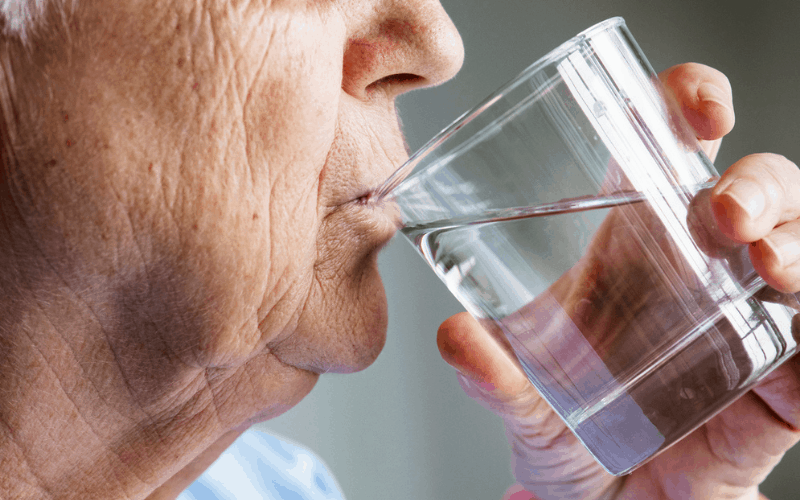We have all been told to drink plenty of water every day, but have you ever stopped to wonder why?
During these hot summer months, staying hydrated becomes even more important. It is especially critical for patients who take multiple medications and/or those that have certain chronic conditions requiring a fluid restricted diet.
Proper hydration for seniors is critical for many reasons. Fluid helps muscles to function properly, helps us to maintain our body temperature, control heart rate and blood pressure, and maintain a healthy metabolism.
Without an adequate amount of fluid each day, dehydration can set in very quickly. Symptoms of dehydration include:
- Muscle cramps
- Extremely bad breath
- Dry mouth and skin
- Extremely dark urine or lack of urination
- Anxiety
- Confusion
- Fainting
- Rapid breathing
- Increased pulse rate
- Kidney stones
- Loss of consciousness.
The amount of fluid varies somewhat from person to person. Exercise, humidity and temperature of the environment, overall health, and gender affect the amount of fluid needed. A good rule to follow is at least 64 ounces of non-decaffeinated fluid each day.
Water is the best option for maintaining proper hydration, but there are other options: juices, herbal tea, Crystal Light, decaffeinated coffee and tea, fruits and vegetables (especially watermelon, cantaloupe, lettuce, spinach, oranges, lemons, cucumber, berries), milk, soups, sherbet, and Jell-O or Popsicles.
Here are a few simple hydration tips for seniors to help your patients stay hydrated:
- Don’t wait until you are thirsty to drink. By the time you feel thirsty, you are on the way to dehydration. Sip water or fluids throughout the day, especially when you are exercise or are outside in the heat.
- Flavor your water, or eat and drink some of the suggestions in this article.
- If possible, stay inside when it is very hot or humid.
- Dress for the weather. If it is hot and humid, wear loose-fitting clothes that allow your skin to breathe. Avoid dark-colored clothes, as these absorb heat.
Intrepid USA’s Registered Dietitian is able to talk with patients about their individual fluid needs and can help patients on a fluid restriction to maximize their daily allowance with nutrient-dense fluids. Contact us today to learn more.

